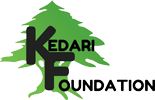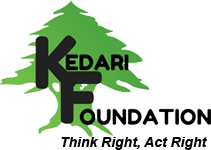Member States, UN agencies, and civil society organizations are channeling unprecedented resources and energy towards a new sustainable development agenda that aims to lift billions out of poverty and deprivation, while realizing their human rights, protecting our environment and creating a more just and equitable world. Robust and participatory monitoring and accountability mechanisms can improve the credibility, ownership and effectiveness of the Post-2015 Agenda for people and for states, and make the entire process of sustainable development more transformative and responsive to peoples’ needs. As the Secretary-General has said, a new paradigm of accountability is in fact “the real test of people-centered, planet-sensitive development.”¹ These processes will create spaces in which States and other actors responsible for the new commitments are answerable to the people and communities whose lives they affect, as well as generate evidence about successful strategies and policies, and emerging problems that require corrective action. The Post-2015 accountability architecture can also foster learning and dialogue and help realize the “leave no one behind” principle, by providing an effective platform for including and integrating the experiences of the most disadvantaged. Strong national accountability mechanisms will be a crucial foundation. However, the global level is also a key site for reinforcing the accountability of national governments to their population, as well as fostering mutual accountability between states for their respective responsibilities in meeting their global commitments. In light of the MDGs experience, we highlight three key attributes of a successful Post-2015 accountability system before moving on to specific proposals for the global level review.
- Although the SDGs will not be legally binding, robust monitoring and accountability should be considered an integral part of the Agenda, not an optional add-on. The lack of a systematic and well-defined accountability architecture has been commonly identified as a key reason for some major shortfalls in achieving the MDGs, including commitments under MDGs 5 (maternal health) and 8 (the global partnership).² States should recognize that by participating in accountability mechanisms for the political commitments under the new goals—including by rigorously monitoring progress, correcting setbacks, hearing from stakeholders and people affected and addressing their concerns—they are helping to ensure implementation at all levels.
- Accountability for the Post-2015 Agenda is a matter of universality, not conditionality. Unlike the MDGs, which applied primarily to developing States, this is a universal agenda and therefore provides an entry point for meaningful monitoring and accountability of domestic implementation by countries at every income level. All States will have the opportunity to participate and provide feedback as equals in reviewing their differentiated responsibilities for meeting collective commitments, for example concerning financing. High-income countries will also have to answer for their role in the global partnership, and the coherence of their policies with the overarching goal of sustainable development for all. In this sense, the Post-2015 follow-up and review processes have the potential to turn the old North-South conditionality dynamic on its head.
- As such, in addition to reviewing individual States’ implementation domestically, mechanisms at the global level should also examine States’ impact on Post-2015 progress beyond their borders. This could be a unique strength of a global review mechanism, as com- pared to national and regional reviews, especially given the magnitude of many of the cross-border challenges we face. A global review should examine the transnational consequences of States’ policies and practices, for example in the areas of financing, tax, trade and the environment, which have a major impact on other States’ abilities to develop sustainably and realize human rights. It should provide a sense of overall progress and common challenges in creating an international policy environment conducive to the fulfillment of the new goals, high- light issues that require joint action, and share lessons learned across countries and regions. Furthermore, it should allow space for examining the effectiveness and impact of partnerships, particularly those involving the private sector and international financial institutions, whose role in the implementation of the new commitments must be subject to rigorous scrutiny to guard against potential adverse human rights impacts.
A FRAMEWORK FOR GLOBAL REVIEW
According to General Assembly resolution 67/290, the High Level Political Forum (HLPF) will serve as the venue to “follow up and review progress in the implementation of sustainable development commitments.” As States further define the contours of this global review, they should take inspiration from existing mechanisms such as the African Peer Review Mechanism and the Universal Periodic Review (UPR) at the Human Rights Council, a well-established, State-led peer review process that monitors human rights obligations in all States. The other international human rights mechanisms may also be a useful reference point for expert-driven review against global standards, based on dialogue with the State with significant involvement from civil society. Building in particular on the UPR working methods, States should ensure that a global review mechanism for the Post-2015 Agenda has the following characteristics:
- A culture of universal participation: While the HLPF review will be voluntary, States themselves must create a culture that expects and incentivizes participation by all. This requires that all States prioritize timely and comprehensive reporting and participate constructively in reviews, including by effectively responding to recommendations.
- An interactive dialogue that reviews each State’s progress in implementing the Post-2015 Agenda: This will require that reviewing States and other stakeholders, including civil society, provide feedback and share experiences to advance the implementation of the Post-2015 Agenda. It will also require sufficient time to conduct effectively moderated dialogues. The dialogues should conclude with targeted and human rights-based recommendations to the State under review.
- Review of every State three times between 2016 and 2030: This schedule will allow States to report on their implementation of the Post-2015 Agenda (in the first review, this will largely involve their national plans and initial progress) and receive recommendations every 4-5 years.
- Comprehensive reporting that feeds into reviews: Reports should consist of:
- Member State reports, in which States monitor progress and analyze challenges, and which also are informed by the national-level review processes and stakeholder consultations, particularly with civil society organizations, and are based on disaggregated, updated data.
- Stakeholder reports, compiled by the HLPF Secretariat from civil society and others’ submissions into official, detailed documents for the review.
- United Nations reports, summarizing the assessments of UN agencies as well as the outcomes of other relevant reviews, particularly those from the human rights treaty monitoring bodies and the UPR process. Information should be shared systematically between these different review bodies.
- Sufficient support and meeting time for the HLPF: It is critical that the HLPF is adequately resourced to conduct meaningful reviews of implementation. This requires that the HLPF be given sufficient meeting time to conduct around 40-50 reviews each year and that it has an adequately staffed, permanent secretariat which can support those reviews including periodic follow-up.
- Open, participatory, and transparent modalities and a meaningful role for civil society: A people- centered sustainable development agenda must enable individuals, particularly those from the most marginalized communities, to participate in the reviews. Civil society organizations, including those without ECOSOC status, should be permitted to participate in interactive dialogues, with a trust fund established to support travel and technology for remote participation. Documents should be available in the languages of the country under review, and dialogues should be live webcast.
- A web of effective monitoring and accountability: The HLPF review should be complemented and informed by efforts at the national and regional levels, as well as global thematic review bodies that are mandated to look at overall progress and bottlenecks on specific goals, drawing on relevant international standards (including human rights and environmental standards) and the cumulative evidence from HLPF country reviews. These thematic bodies should be made up of independent experts and could be coordinated by existing specialized bodies, such as UN agencies.
Notes:
¹ UN Secretary-General, The Road to Dignity by 2030: Ending Poverty, Transforming All Lives and Protecting the Planet (2015)
² CESR and OHCHR, Who Will Be Accountable? Human Rights and the Post-2015 Development Agenda (2013).






Leave a Reply